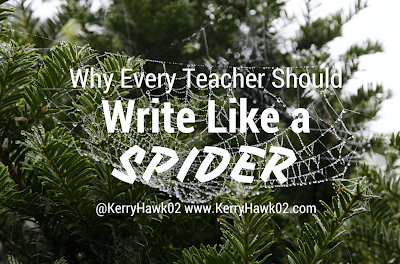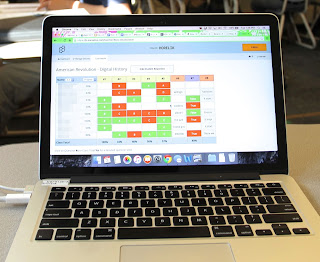Why Every Teacher Should Write Like a Spider

Image Source: Pixabay This is what it feels like. The idea is there. It might develop because of a conversation. That conversation reminds you of a lesson you taught, a workshop you participated in, or an article you read. The idea is the fibrous web that connects all of those things together. At this point, though, the web is only in your head. You're not sure where each of the strands will be, but you know they will be there. At this stage you have a constant nagging need to nurture it until it is fully formed. So, as the day goes on you take quick notes. Maybe they're on a notepad or on your phone. Each note is a strand of the idea web. You methodically record each note, starting to design the structure of the web. Once you have a basic outline that connects all of the pieces, you start to write. Those notes are now subheadings, and the details on each of those big ideas become paragraphs under the subheadings. Once it is done, you sit back and look at the web. You
